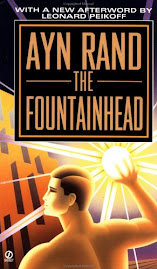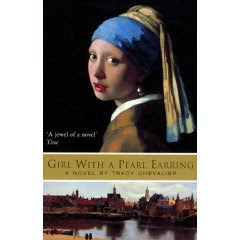 Interview With the Vampire:
Interview With the Vampire:Amazon.com
In the now-classic novel Interview with the Vampire, Anne Rice refreshed the archetypal vampire myth for a late-20th-century audience. The story is ostensibly a simple one: having suffered a tremendous personal loss, an 18th-century Louisiana plantation owner named Louis Pointe du Lac descends into an alcoholic stupor. At his emotional nadir, he is confronted by Lestat, a charismatic and powerful vampire who chooses Louis to be his fledgling. The two prey on innocents, give their "dark gift" to a young girl, and seek out others of their kind (notably the ancient vampire Armand) in Paris. But a summary of this story bypasses the central attractions of the novel. First and foremost, the method Rice chose to tell her tale--with Louis' first-person confession to a skeptical boy--transformed the vampire from a hideous predator into a highly sympathetic, seductive, and all-too-human figure. Second, by entering the experience of an immortal character, one raised with a deep Catholic faith, Rice was able to explore profound philosophical concerns--the nature of evil, the reality of death, and the limits of human perception--in ways not possible from the perspective of a more finite narrator.
 The Vampire Lestat:
The Vampire Lestat:Amazon.com
As with the first book in the series, the novel begins with a frame narrative. After over a half century underground, Lestat awakens in the 1980s to the cacophony of electronic sounds and images that characterizes the MTV generation. Particularly, he is captivated by a fledgling rock band named Satan's Night Out. Determined both to achieve international fame and end the centuries of self-imposed vampire silence, Lestat takes command of the band (now renamed "The Vampire Lestat") and pens his own autobiography. The remainder of the novel purports to be that autobiography: the vampire traces his mortal youth as the son of a marquis in pre-Revolutionary France, his initiation into vampirism at the hands of Magnus, and his quest for the ultimate origins of his undead species. While very different from the first novel in the Vampire Chronicles, The Vampire Lestat has proved to be the foundation for a broader range of narratives than is possible from Louis's brooding, passive perspective. The character of Lestat is one of Rice's most complex and popular literary alter egos, and his Faustian strivings have a mythopoeic resonance that links the novel to a grand tradition of spiritual and supernatural fiction. --Patrick O'Kelley
 The Queen of the Damned:
The Queen of the Damned:Amazon.com
Did you ever wonder where all those mischievous vampires roaming the globe in Anne Rice's Vampire Chronicles came from? In this, the third book in the series, we find out. That raucous rock-star vampire Lestat interrupts the 6,000-year slumber of the mama of all bloodsuckers, Akasha, Queen of the Damned.
Akasha was once the queen of the Nile (she has a bit in common with the Egyptian goddess Isis), and it's unwise to rile her now that she's had 60 centuries of practice being undead. She is so peeved about male violence that she might just have to kill most of them. And she has her eye on handsome Lestat with other ideas as well.
If you felt that the previous books in the series weren't gory and erotic enough, this one should quench your thirst (though it may cause you to omit organ meats from your diet). It also boasts God's plenty of absorbing lore that enriches the tale that went before, including the back-story of the boy in Interview with the Vampire and the ancient fellowship of the Talamasca, which snoops on paranormal phenomena. Mostly, the book spins the complex yarn of Akasha's eerie, brooding brood and her nemeses, the terrifying sisters Maharet and Mekare. In one sense, Queen of the Damned is the ultimate multigenerational saga. --Tim Appelo --This text refers to the Mass Market Paperback edition.




No comments:
Post a Comment